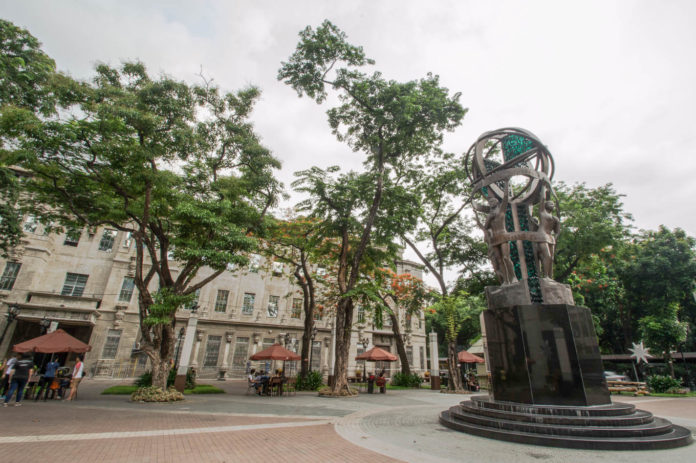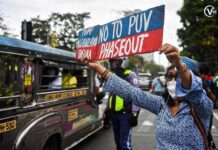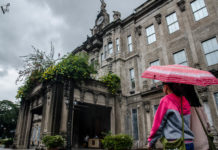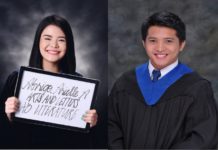THE UST Department of History is calling for a more comprehensive education to cure Thomasians’ lack of concern on national issues, such as rejecting the evils of Martial Law.
“We should change the paradigm because so many events happened after the World War, including Martial Law. If you want a more in-focus discussion on Martial Law, better create a new chapter just to discuss it,” Augusto de Viana, chairman of the history department, said in an interview with the Varsitarian.
De Viana said the absence of Philippine history subjects in some of the University’s colleges had led to students’ “half-baked” knowledge.
In the University curriculum, a course on Philippine history is optional. The College of Architecture and College of Nursing opted not to have a subject on Philippine history, while other colleges and faculties such as the UST-Alfredo M. Velayo College of Accountancy and Faculty of Pharmacy merged the subject with Philippine Government and Constitution.
“Students are not apathetic. I would say they lack the proper knowledge. If there are any apathetic students, blame the one implementing education,” de Viana said.
Students’ discretion
Dennis Coronacion, chairman of the political science department, said perception on the Martial Law regime of the late dictator Ferdinand Marcos was open to debate because of the different perspectives produced by historians and scholars. He pointed to the absence of an official narrative by the government.
“If you have an official history, it would be impossible for other authors to come up with their own version. If ever they would, it would not be patronized by other people,” Coronacion said in an interview.
Coronacion said the University was taking an objective approach on the history of Martial Law by teaching students the benefits of democracy, and at the same time instilling Thomasian values and democratic values.
“Our purpose here is not to preach a political agenda. [Let] the students decide which side to take, whether the students will be pro-Marcos or anti-Marcos, it’s up to them. I think that’s the essence of liberal education – free thinking. The professor should not manipulate the decisions of the students,” he said.
Mark Abenir, chairman of the UST Simbahayan community development program, agreed with Coronacion and said there was no motivation from the administration to inspire students to think that Marcos was not a hero.
“In other universities you would see that their respective administrations are at the forefront of the protests and that inspires students. [In UST] it’s more of letting the students decide if they want to participate in these activities or not,” Abenir said in a chance interview with the Varsitarian.
Kevin Castro, spokesman of the National Union of Students in the Philippines – Manila, in a forum titled “Papunta Ka Pa Lang, Pabalik Na Ako: Isang Pagsusuri at Talakayan sa Kabataang Milenyal,” urged the youth to go beyond learning about Martial Law in classrooms and in social media.
“[As high school and college students,] it is not enough to read different articles that we see on the Internet. [The youth] needs to read books that will challenge their conservative way of thinking so that it will become revolutionary and progressive,” Castro said in front of students at the Benavides Auditorium last Dec. 28.
‘Political system’
A political analyst said forgetting the atrocities of Martial Law has no relation with the late dictator’s son Ferdinand “Bongbong” Marcos Jr. dominating the UST vice presidential survey conducted by the Varsitarian in 2015.
“We are limited with the same political elites or political dynasties. The political system is to blame. It does not have anything to do with forgetting Martial Law. It does not have anything to do with apathy,” political science professor Edmund Tayao said.
Tayao pointed out that the 1986 EDSA revolution that led to the return of democracy brought about “no significant change.”
“Even if the [students] are educated about what happened during Martial Law, it does not resonate with the factor in considering who the [students] will vote for because they don’t see the significant change in the return of democracy,” he said.
In the Varsitarian survey conducted from October to November 2015, Bongbong Marcos topped other candidates with 29 percent. In the February to April 2016 survey, he got 28.2 percent, a statistical tie with the election victor, Vice President Maria Leonor “Leni” Robredo who got 24.9 percent.





















